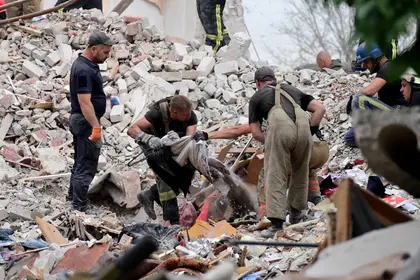Soldiers from ethnic minority groups are said to be dying in greater numbers than their Slavic counterparts, according to top sources. Researchers using open-source data claim that among the Russian dead in Ukraine, soldiers with ancestry in less developed areas like Buryatia and Dagestan are overrepresented.
Although more than 160 other ethnic groups call Russia home, about 80% of people identify as Slavs or Russians by ethnicity. As a result, there are growing tensions between minority groups and the state, particularly as the illegal invasion of Ukraine drags on.
- Get the freshest Ukraine news updates as of today.
- Russian Losses
JOIN US ON TELEGRAM
Follow our coverage of the war on the @Kyivpost_official.
Pavel Luzin, a military specialist, claims that the majority of Russian ground units’ soldiers and officers are from underdeveloped Russian towns and villages, where there are a greater number of minorities from low-income homes with little education.
In an interview with Al Jazeera news, Luzin further explained: “This socio-economic stratification has a long tradition in the Russian armed forces, because young men from the cities with relatively good education serve in other military branches … but the infantry consists of poorly trained soldiers from poor families and regions.”
Victoria Maladaeva, a representative of the Free Buryatia Foundation, outlined how minorities from the Siberia region are left without a voice. “We can’t determine our own politics,” he said. “If we had a real federation, the head of our republic could say no, Buryats won’t fight in this criminal war. But he keeps providing cannon fodder for Putin.”

Trump Makes 90 Day Foreign Aid Freeze – Ukraine Military Support Supposedly Untouched
“Buryatia, like the other ethnic republics, is governed by the colonial policies of Moscow.”
She further added: “Our languages and history are disappearing off the face of the Earth, while Moscow sucks all the money and resources out of the provinces. Moscow is a beautiful city but it’s such a facade of all of Russia, because if you go just a little further, the houses are falling apart, there are no roads, there’s no work.”
The organisation ‘The Free Buratia Foundation’ was founded by Maladaeva soon after Russia’s invasion of Ukraine began, and produces anti-war videos, conducts research on Russian casualties in Ukraine, offers a community for like-minded Buryats, and aids would-be soldiers to avoid being sent to the front in addition to advocating for greater independence from Moscow.
The foundation announced in July that it had assisted 150 Buryat soldiers in finding ways to decline their participation in the war and return home.
You can also highlight the text and press Ctrl + Enter











